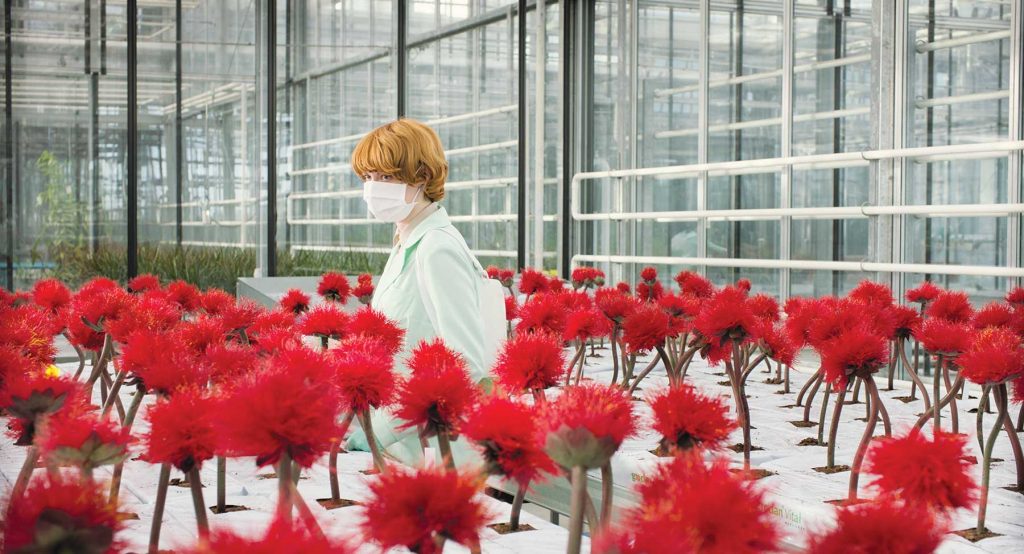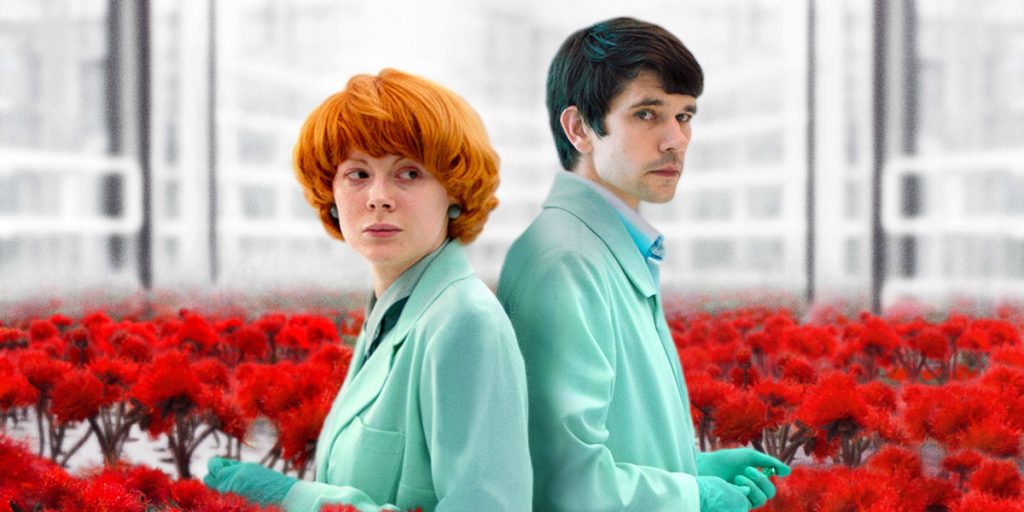Little Joe poses an intriguing paranoia-fueled floral invasion narrative that suffers from disjointed stylistic elements and sterile emotional engagement.
Set in the near future in a laboratory where plants are bio-engineered for independent survival, scientist Alice Woodard (Emily Beecham, in a Cannes Best Actress award-winning performance) has successfully bred a flower capable of releasing happiness pheromones that also needs constant care and attention to survive. Worried about their effects on humans, the lab studies the experimental flowers with initial skepticism and rigorous tests. Wanting to observe the flowers on her own, Alice sneaks one into her home and names it “Little Joe” after her son Joe (Kit Connor). All seems well until she starts noticing strange behavioral changes in Joe and her colleagues at the lab, leading Alice to suspect sinister motives from the flowers as she discovers a shocking revelation about their nature.
The film is most engaging in its intellectual side, posing a clever spin on the familiar invasion narrative while exploring intriguing thematic threads about nature and nurture. Little Joe is the most intriguing character in the film, an antagonist not hell-bent on death and destruction nor a superior intelligence, just a simple being with a basic biological will to survive. In an age of genetic engineering where scientists play God, a simple creation rebelling against the constraint of sterility is the ultimate terror, a being that wants to continue its species’ existence. The “invasion” plays out gracefully through the plot, a slow build-up of escalating paranoia and suspicions that never feels rushed, but maybe a little too subtle.
Occasionally, the film sprouts with moments of stylistic flourishes. Vibrant reds, pinks, and purples pop against whites and greens, injecting welcome bursts of dramatic color into this cinematic world. The camera moves with clinical precision in laboratory scenes, the opening shot spinning at an overhead angle, like the motion of a CCTV camera. Slow zooms build looming apprehension in moments of conversation, while most dialogue scenes are shot in long takes, occasionally shifting perspective. Scenes of violence are treated with casual indifference, occurring just out of view of the frame, as the camera seems to ignore the film’s most sensational instances of bodily conflict.

The editing feels invisible, quietly cutting between shots, silencing any sense of necessary visual rhythm or energy to a film that desperately needs more urgency and tension. Meanwhile, the score shrieks with dissonant shrills, an avant-garde soundscape of woodwinds, percussion, and vocal elements that add a tinge of otherworldly terror that deeply juxtaposes the subtle, covert mood of the film. While film’s stylistic elements stand out at times, they never properly coalesce together into a cohesive whole and instead inform a tonally confusing viewing experience.
Ultimately, Little Joe plays something like the plant-fueled paranoia of Invasion of the Body Snatchers by way of Contagion’s clinical realism, although sadly lacking the tension and terror of those bio-thrillers. There are no thrills to be found and nowhere to emotionally engage either—the visuals feel too calculated and measured to aesthetically stimulate, the music screeches with grating disharmony, and the human element of the characters feel cold and distant, even aloof at times. Understated performances and staid dialogue met with flashes of giallo-esque colors and jarring music strike the entire affair as discordant, revealing the film as unconfident in itself and relying too heavily on occasional moments of outward style to provoke tension and fear. The surface elements fail to move us as the story doesn’t meet its aesthetic elements, and neither complements the other.
The ideas the film poses intrigue the mind, but with nothing to properly engage the senses and emotions, we are left as casual observers in a celluloid lab watching a cinematic specimen with cold, scientific detachment.
Little Joe is now available on to own on DVD/Blu-Ray and Digital HD, and on the BFI iPlayer.

